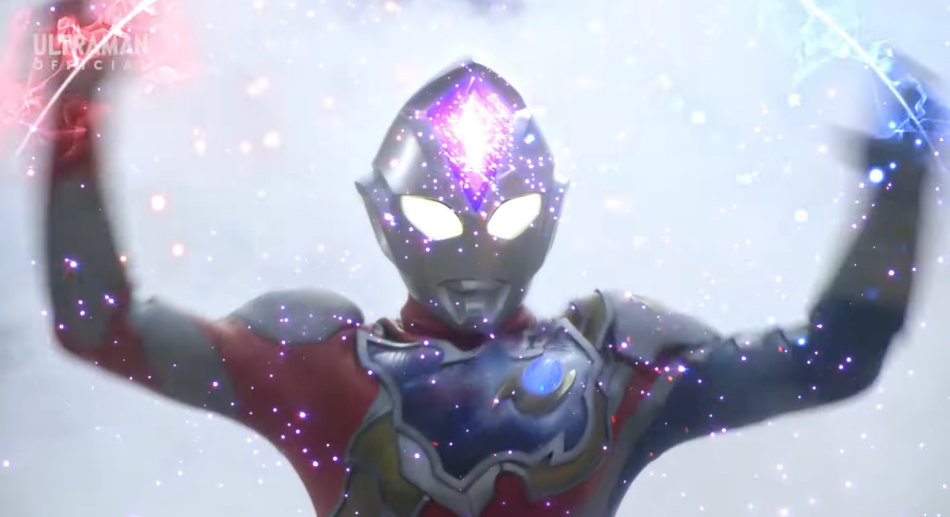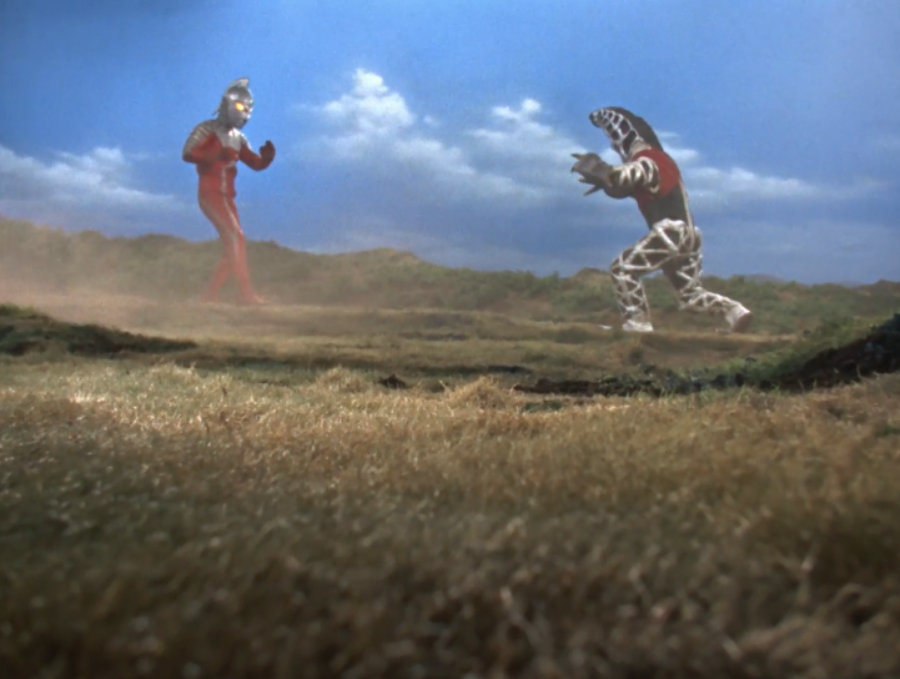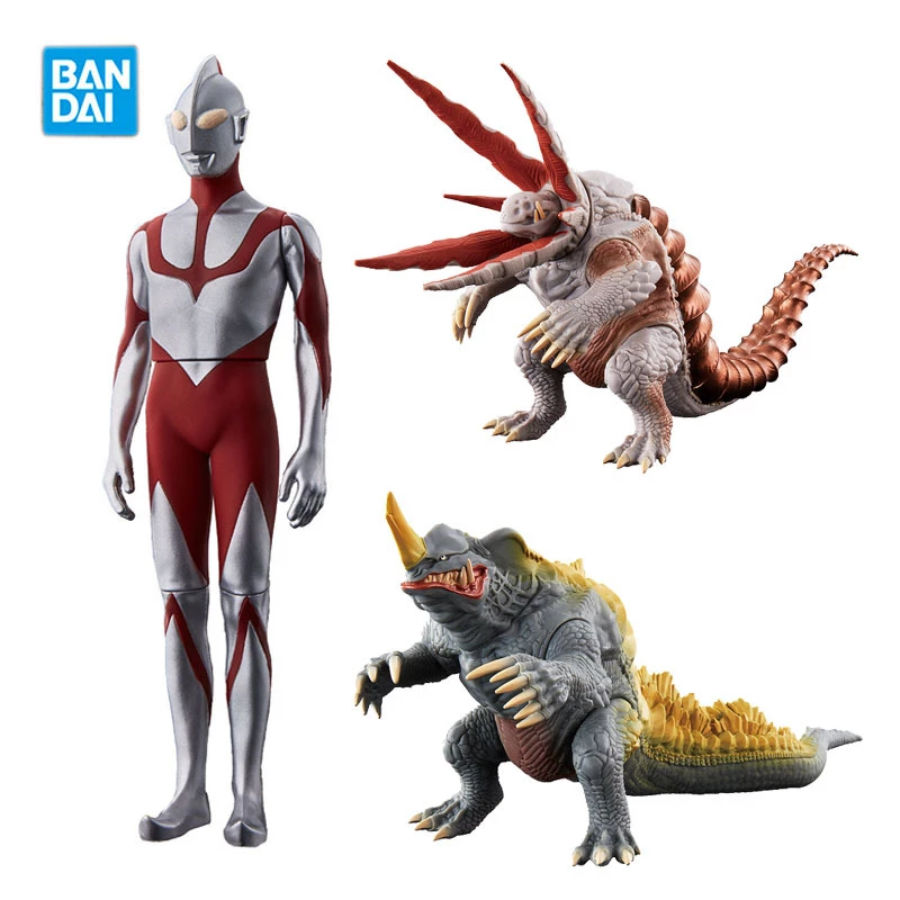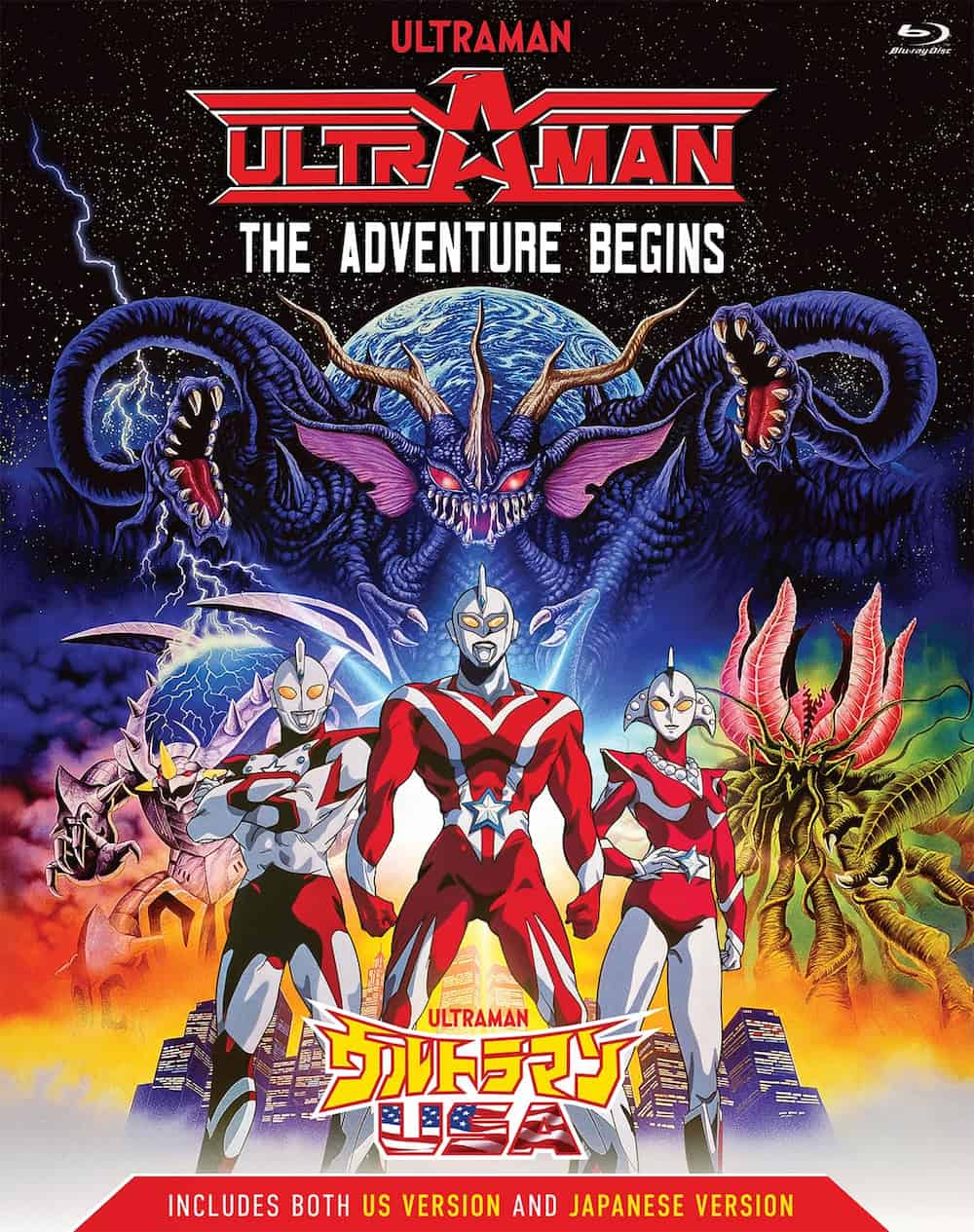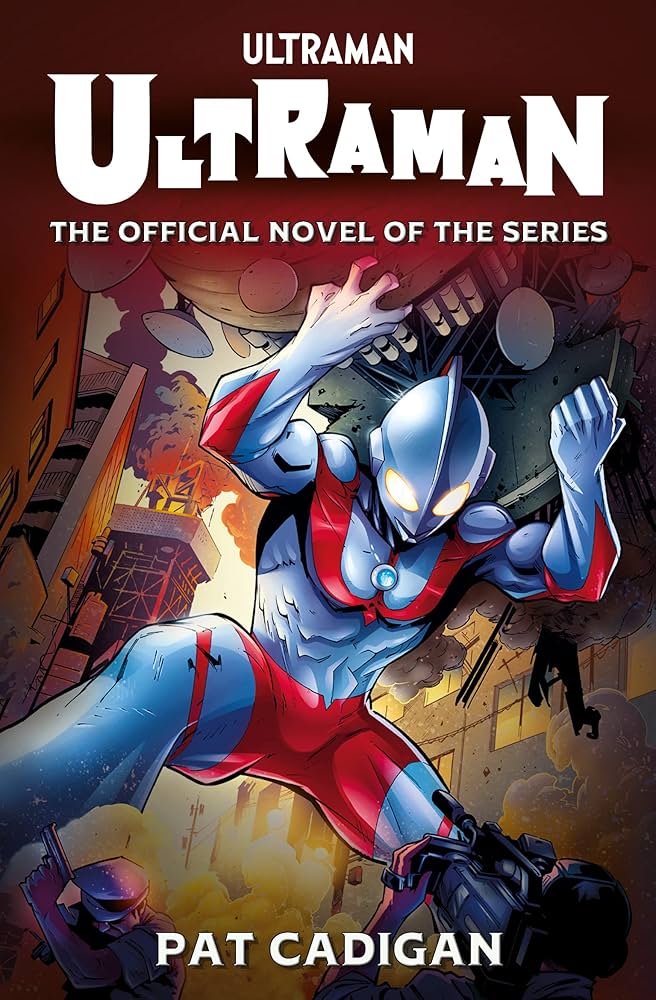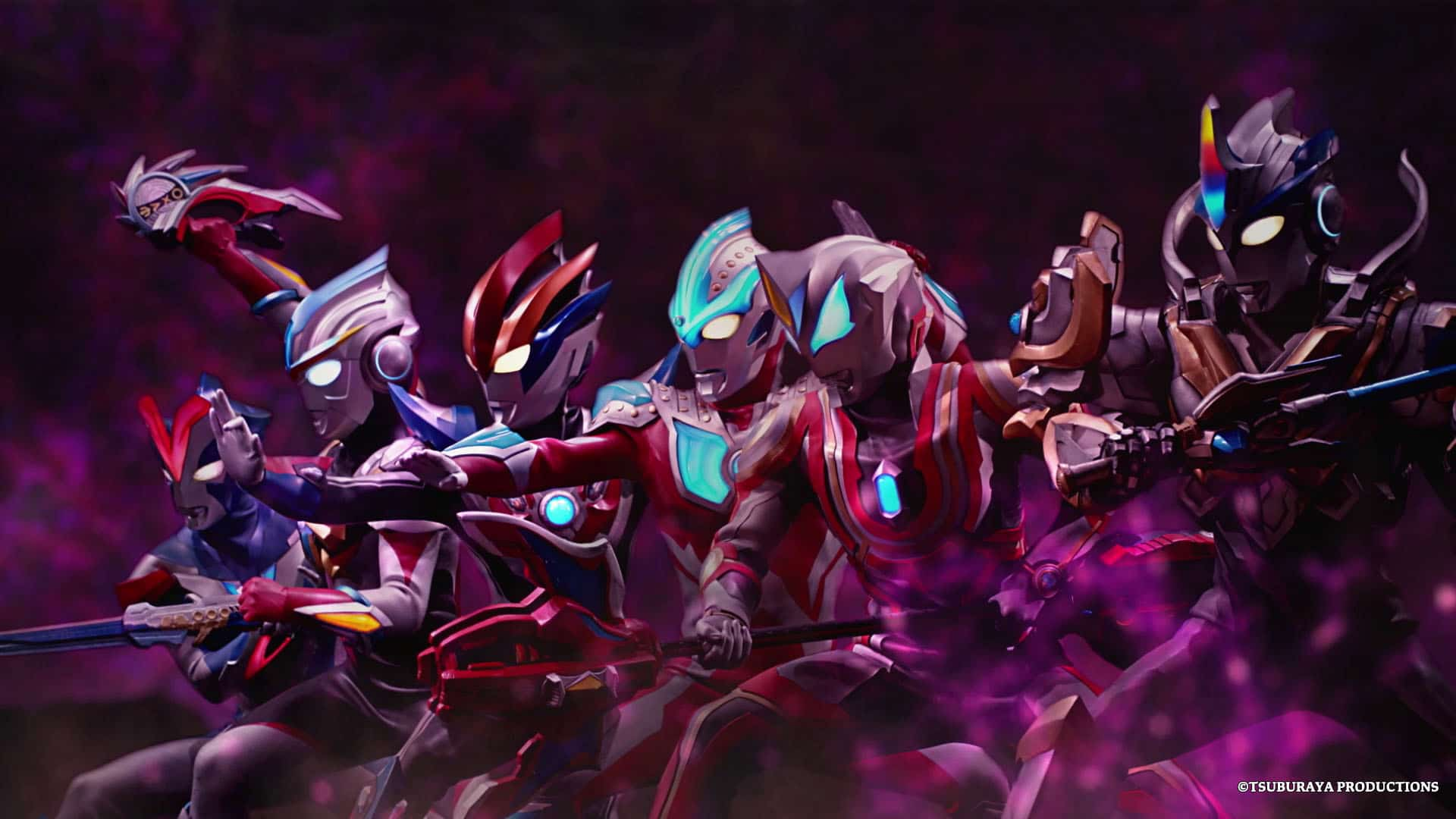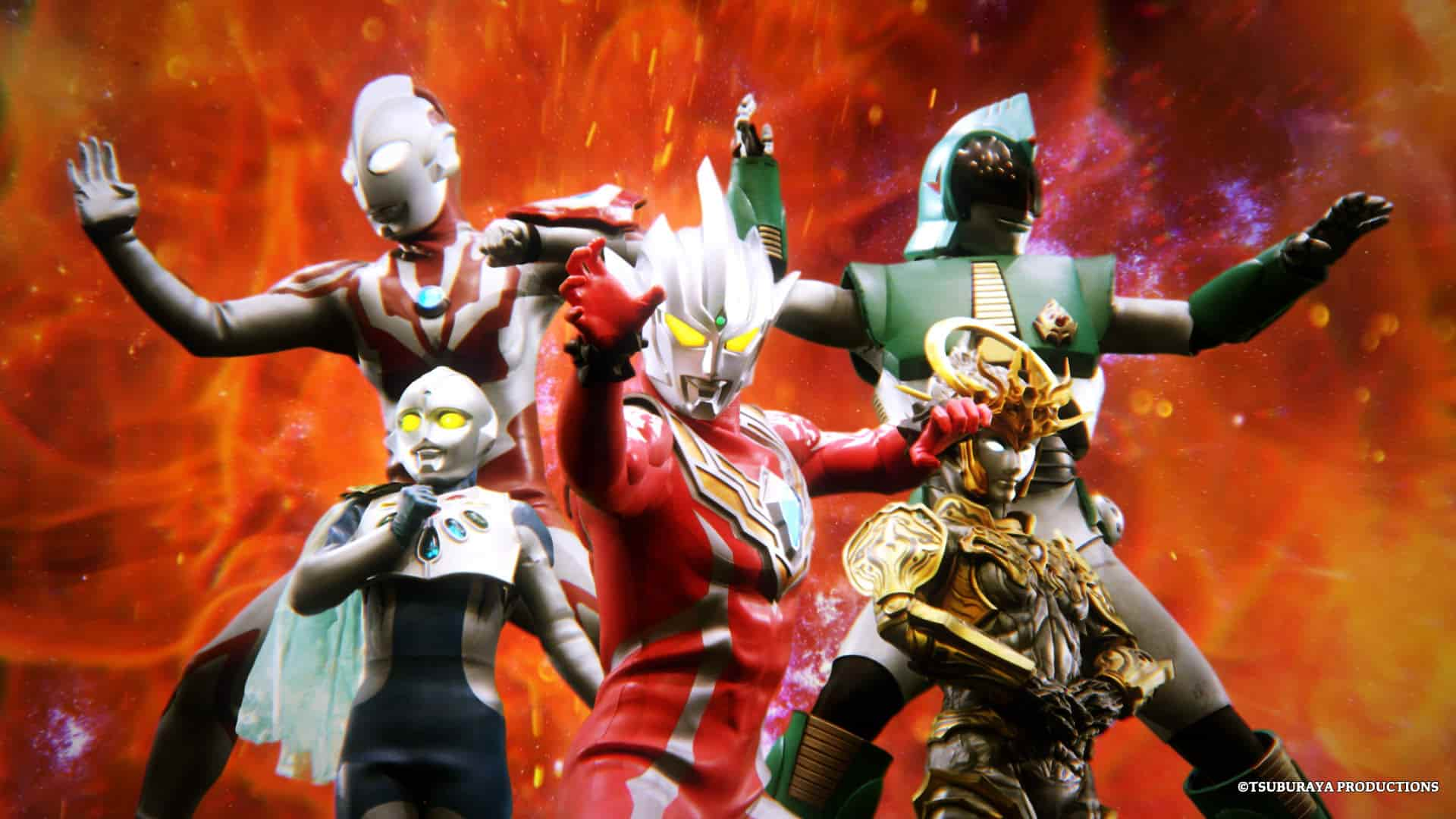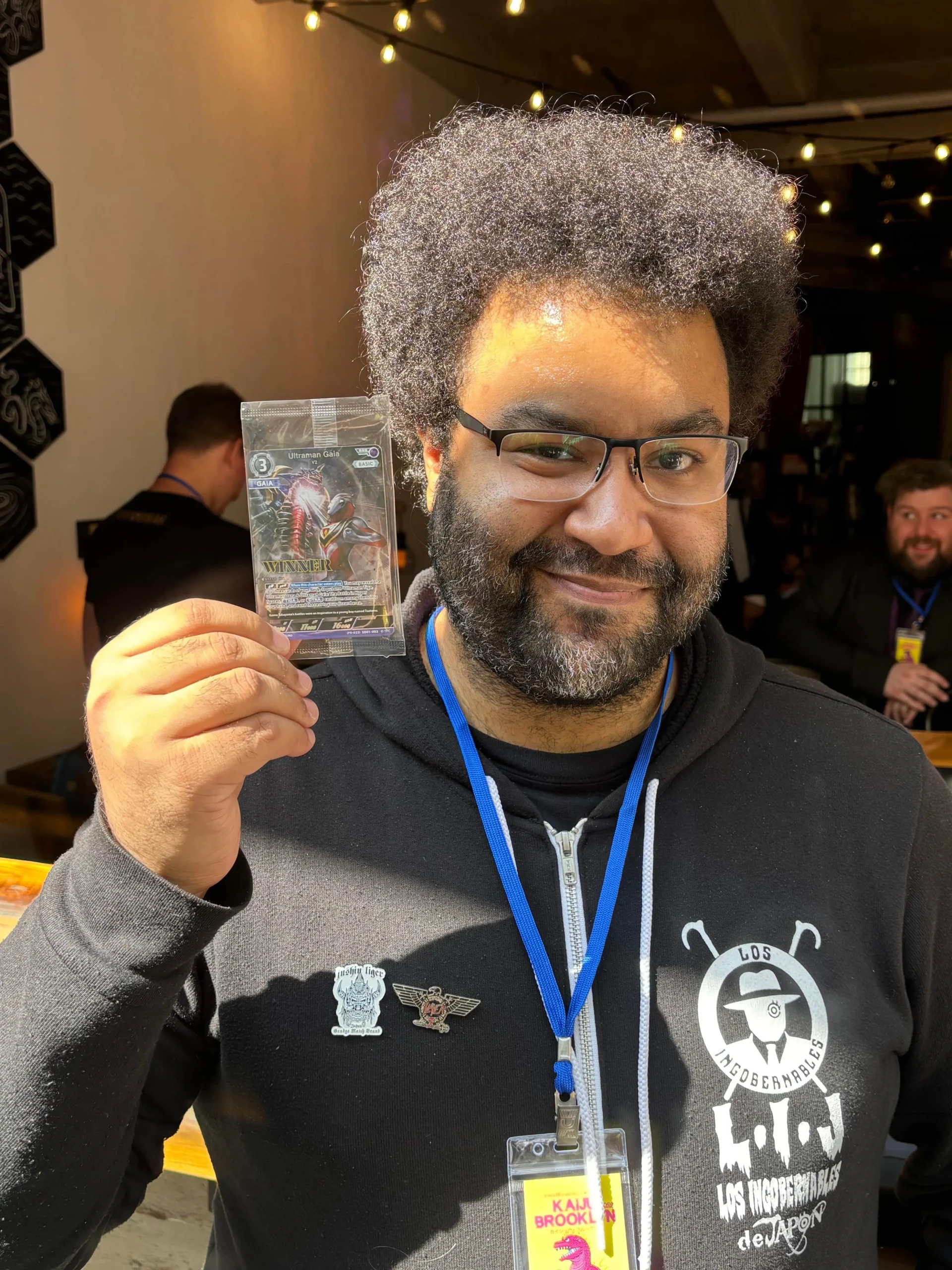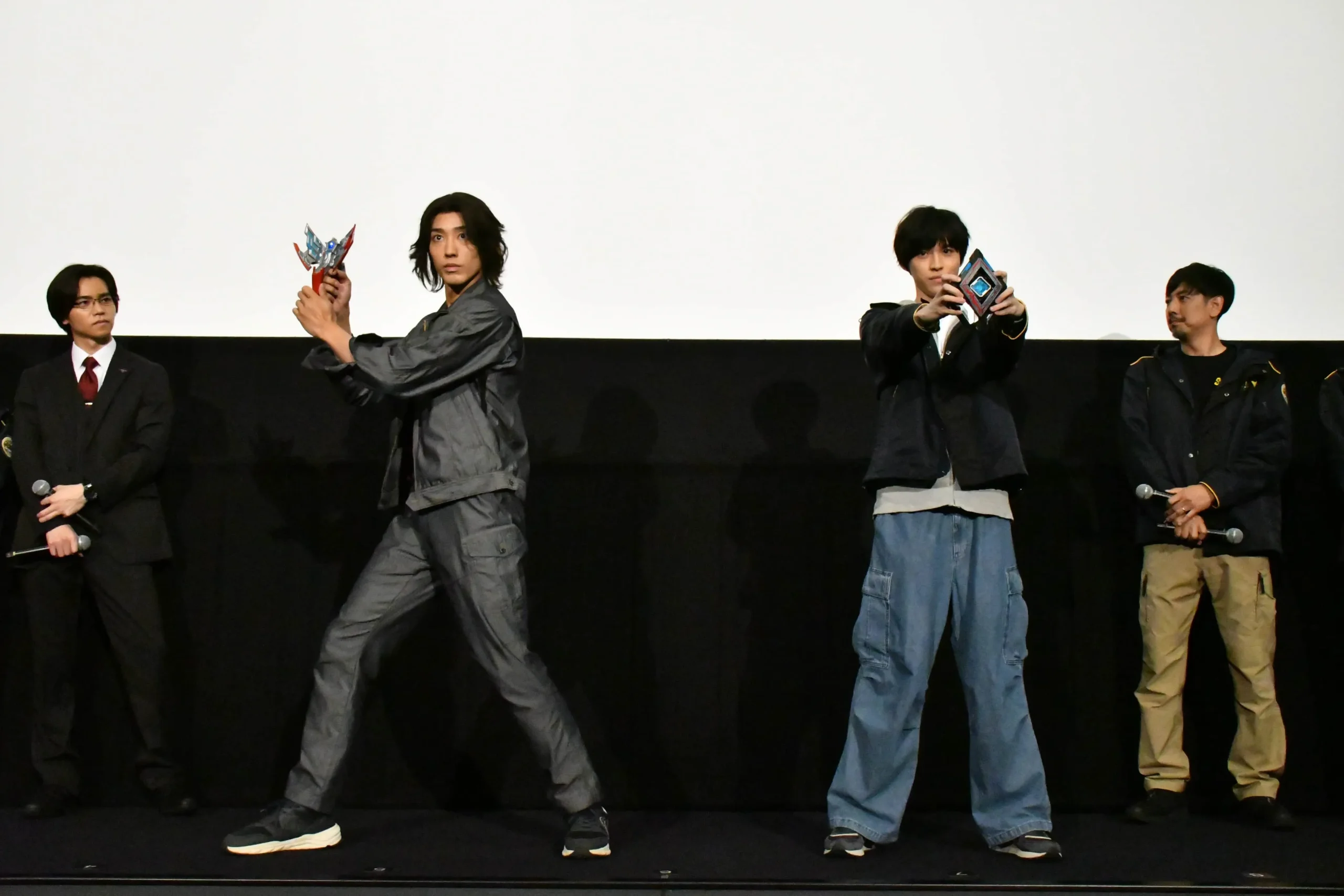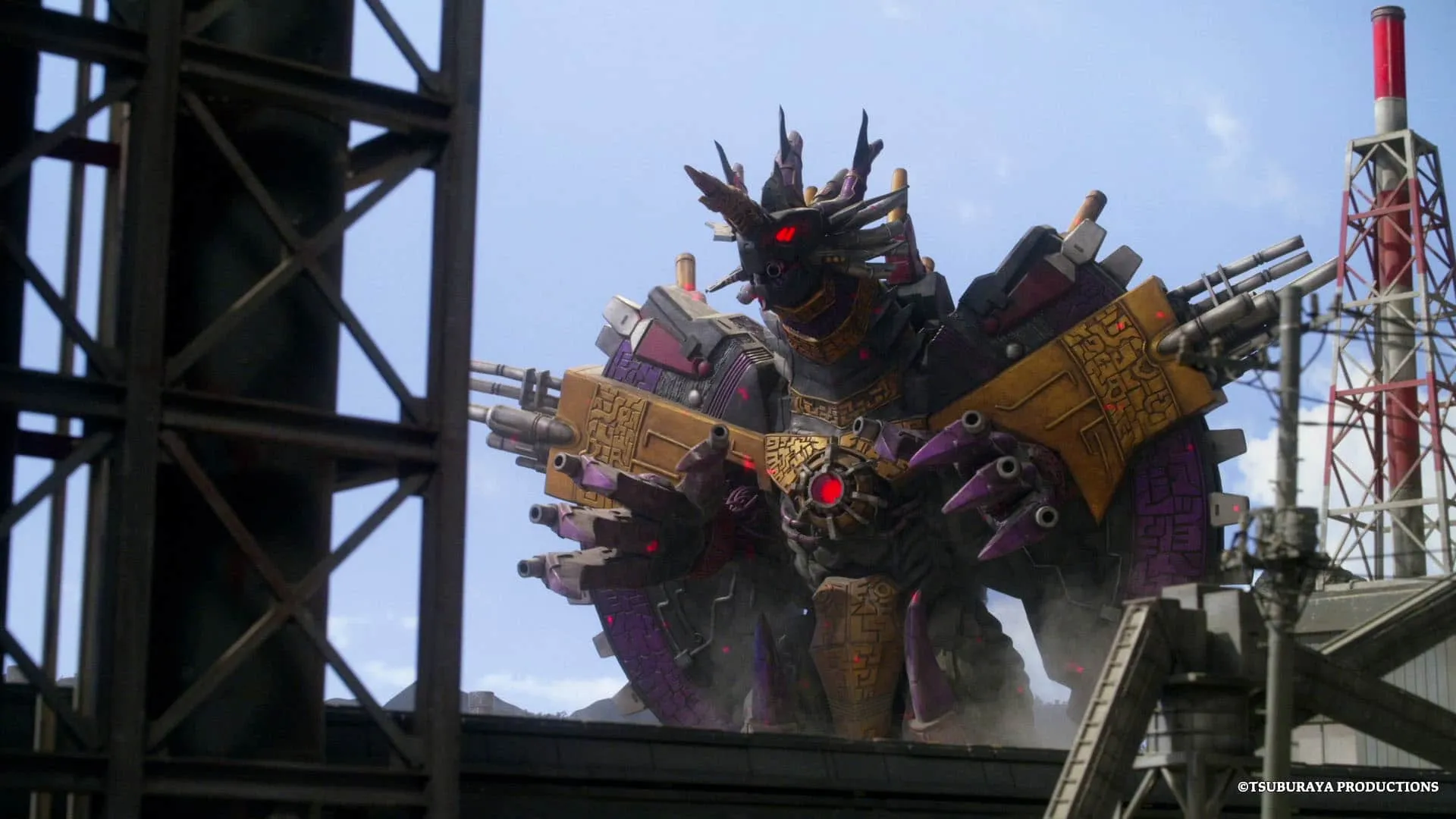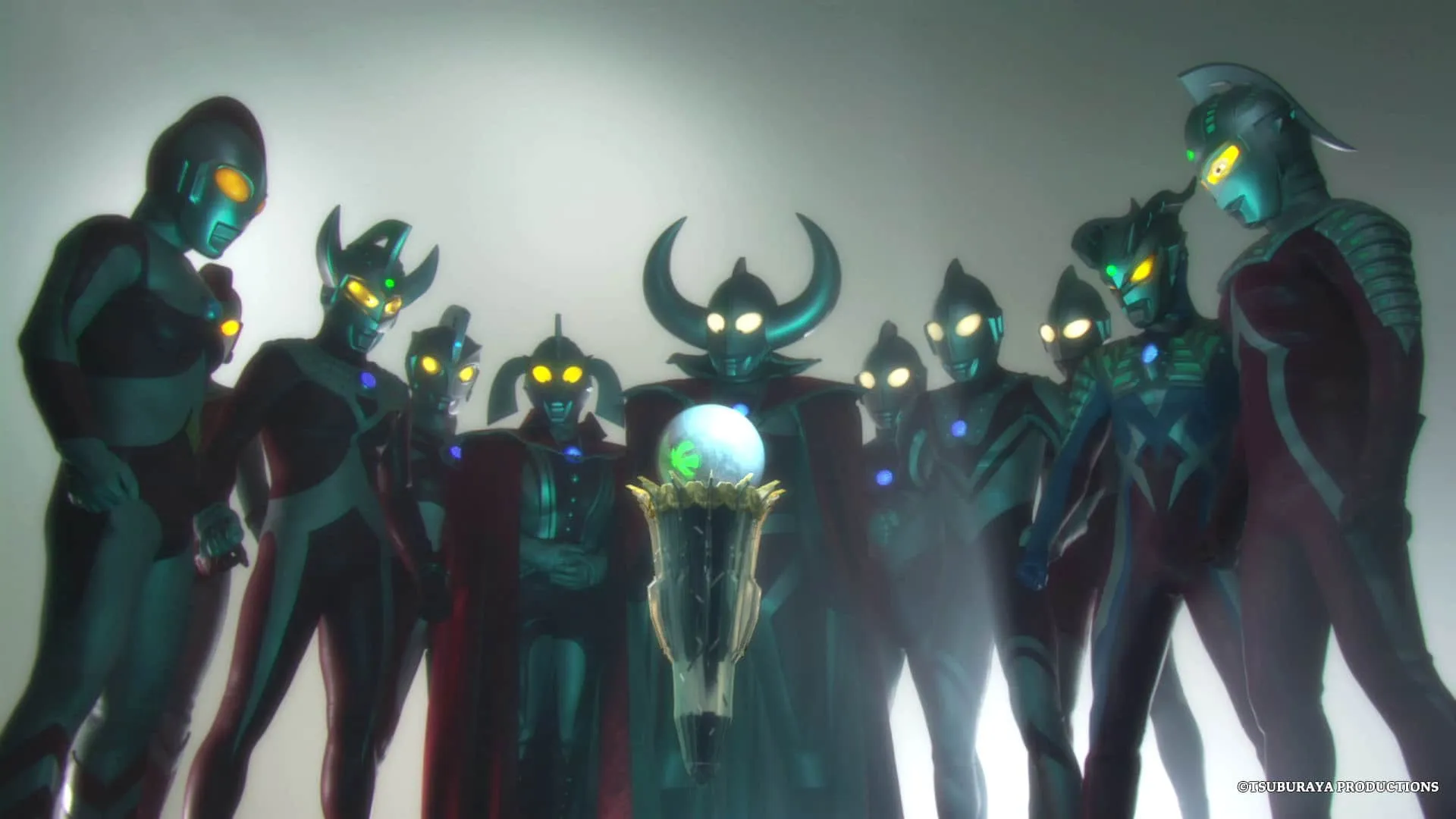Writing the ending of a story is often the most challenging part, in my opinion. Really, the same could be said of any writing. When we first set off on this journey together, dear readers, in July with the premiere of Ultraman Decker, we had no idea where that ending was going to take us, especially considering many of the dramatic twists and turns through the many adventures, dilemmas and heady victories within the show. Many times, when I write about a series in this way, over the course of its full run, I want to start off by recapping the events of the show to this point, to explain how we got there.
Such a recap isn’t necessary this time, however, because the final episode of Ultraman Decker does a fantastic job of tying together all the major themes and character arcs of the show in a complete, cohesive, and emotionally powerful way. In fact, the more I sat down to think about this episode, the more I realized that – beyond just being a fun, engaging and often-times dramatically gripping superhero story – Ultraman Decker also happens to be one of the best time travel stories I’ve seen in this genre.
Before I make that point, I probably should pick up where last week left off, right? With all the characters facing their darkest moment, and their darkest fears realized as all the allies and forces they had come to depend upon in this series literally were knocked out of the sky by the Mother Sphere.
This alone isn’t anything new for the franchise; the recap “Special” episode between episodes 23 and 24 made that point, regarding how many times the Earth has been under the threat of annihilation. However, intellectually knowing there’s going to be a happy ending is quite different from believing it in that moment, facing such a seemingly hopeless scenario. Personally, I think that hopelessness is why Kanata lost the power of Ultraman in the previous episode. After being absorbed by the Spheres in the first episode, Kanata drove back their influence and claimed that power through sheer force of will – simply being too stubborn to admit defeat.
Last week though, that attitude shifted. When his fellow GUTS-Select teammates showed concern for him and his deteriorating health, he simply shrugged it off with a smile, telling them that his job was to “buy them time”. But the cost of that purchase was too great, and everyone knew it – especially Ichika in that episode. In other words, he went out the first time against the Sphere Mother without the belief that they could actually win.
A self-fulfilling prophecy if you will.
In addition to losing the power of Decker and the Nursedessei in that fight, Kanata himself was protected from dying thanks to the last-minute sacrifice of Agams himself. Now, the realization sinks in among all the surviving members of GUTS Select, that he also purchased them time with his own life.

Ironically – or not, you could make the argument – this pit of despair, the lowest rock-bottom point that all the characters find themselves floundering in at the start of this episode, proves to be the key to their victory. Only here, facing a seemingly insurmountable threat, with nothing left to lose, can the characters truly be united as a team.
The scene in the darkened cockpit of the Nursedessei, where Kanata’s secret finally comes out to the whole team, is one of my favorite parts of this entire season. It’s just so fantastically well-acted and seriously framed. It’s also perfectly bookended by some much-needed comedic relief when Kengo’s secret identity as Ultraman Trigger also is made public.
This allows the GUTS Select team to make a new plan, which uses all their unique talents, strengths, and courageous spirits combined to pull off one last-ditch effort to save the Earth. Even Agams contributes to the team beyond the grave, in some small amount of redemption after finding his heart again last episode. He left them the Terraphaser robot, and the knowledge of the Sphere Mother’s weakness which was hinted at earlier in the show.
Sure, the weak point just ends up being “hit the big glowing crystal thingie in its chest” but we’ve got enough going on here in the final episode already, all we need is just a target to aim for.

Even with everyone working together to take back the energy of the Eternity Core, to give Kanata enough light to transform into Decker again, it almost seems like it won’t be enough.
(As an aside note, I LOVE the detail that he just jumps straight into Dynamic form there, because it’s fundamentally a representation of his personal strength, rather than something he inherited from the future.)
But regardless of the Ultraman franchise’s penchant for jaw-droppingly spectacular final transformation sequences in these ending episodes, the Spheres still overwhelm everyone in the battle. In the blink of an eye all the characters are consumed and absorbed, the same way Kanata was in the first episode.
Right, I mentioned this series is a great time travel story, right? This is why I believe that.
In this space within the Spheres, the invaders promise the main characters a future free from struggle, war, failure and mistakes. It sounds good in theory, maybe, but the entire run of the show has been a 25-episode refutation of that concept.
None of the characters were brought to this moment because they only desired peace and tranquility. Kanata wanted to sell rice crackers. Ichika wanted to be an astronaut. Even Ryumon, who desired this position specifically on the GUTS Select team, first desired to join the team from his own tragedy, losing his family in a kaiju attack ten years ago.
All the choices they have made, the people they have become over the last year, have been in response to tragedy, but they have become stronger, kinder, have met new friends, encountered new things, learned new skills, and achieved new feats, all because of those struggles and challenges.

As it was said earlier in the show, by Ultraman Dyna himself — no one knows the future. Not even the Spheres.
To claim that a better future would be created if all the individuals of this world would just disappear into itself and its singular will, is not a peaceful, comforting thought. It’s an insult to everything the characters have fought for and believed in by this point, and they respond to it as such.
After this point, where all the characters break the Spheres’ influence just by being infuriated by their shallow attempt of moralizing, the battle is over very quickly. I love how all the characters have a chance to do something cool in the final showdown against the Spheres – even Kengo and his seemingly-dinky looking laser rifle.
The real victory of that final battle doesn’t come from just seeing the Spheres defeated, and the Sphere Mother exploding into fireworks either. After that moment, when the final credits begin to roll, the audience and all the rest of the characters get to see all the people who were stranded in space, separate from their loved ones, friends, and family members on Earth, finally come home.
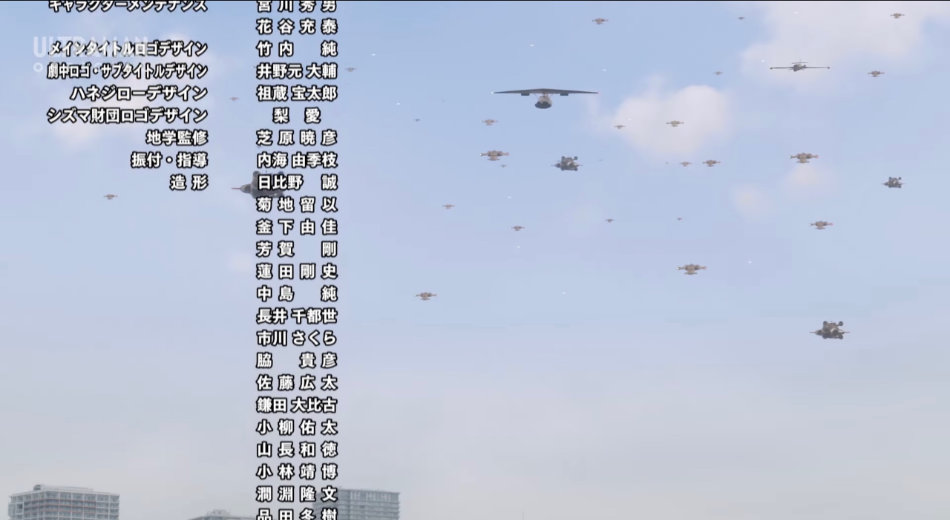
I don’t know about you, readers, but I just about cried.
No one knows what the future will bring for the Earth now that the Spheres have been defeated. Humanity might go on to make more mistakes, and probably will. The power of Decker disappears back into the future, in some way I think beckoning Kanata to continue chasing it. And as a reminder of that future, he also sees just a brief glimpse of Agams and Laelia, reunited and happy once again.
I think many people interpreted that glimpse as a look at their ghosts, but I saw it another way. We learned from the future Decker Asami that future timelines stay in place, unaffected by changes in the past. At the time, he said that to hammer in the futility of Agams’ original quest for revenge. That version of Agams is also dead now.
But in a very roundabout way, because he came to the past, bringing the Terraphaser robot and his own knowledge, Kanata and the others were able to protect their own future. Somewhere out in that future is a new promise, of the planet Bazdo, and a future version of Agams and his people, that humanity will meet some day, peaceful and free of the destruction and despair wrought by the Spheres.
Maybe the Spheres will appear again someday, just like they did in the previous timeline. After all, these basically seem to be the same Spheres as from the Dyna series itself, crossing over into different dimensions. Just like all the other possibilities, no one knows for sure, what keeps the characters, and the Earth itself, moving forward into the future is the hope that they will be able to overcome it, just as they did today.
Ultraman Decker manages to end on such a powerfully heartwarming note, delivering this message, because regardless of how all the characters moved through time and space, their impact on the world around them was meaningful in many ways.
Rather than relinquishing one’s agency and will to despair and the vagaries of fate, Ultraman Decker shows how these encounters with both the future and the past should drive us forward in our lives, to accept new responsibilities, to create new bonds with each other, and to continually reach into the unknown future with those bonds guiding us.
At the end of the day, that’s just why I love Ultraman in general.
Readers, I don’t know what the future holds either. But I can’t wait to see it arrive, and hope you’ll continue to join us at Ultraman Connection, to encounter it as well. Stay tuned.
